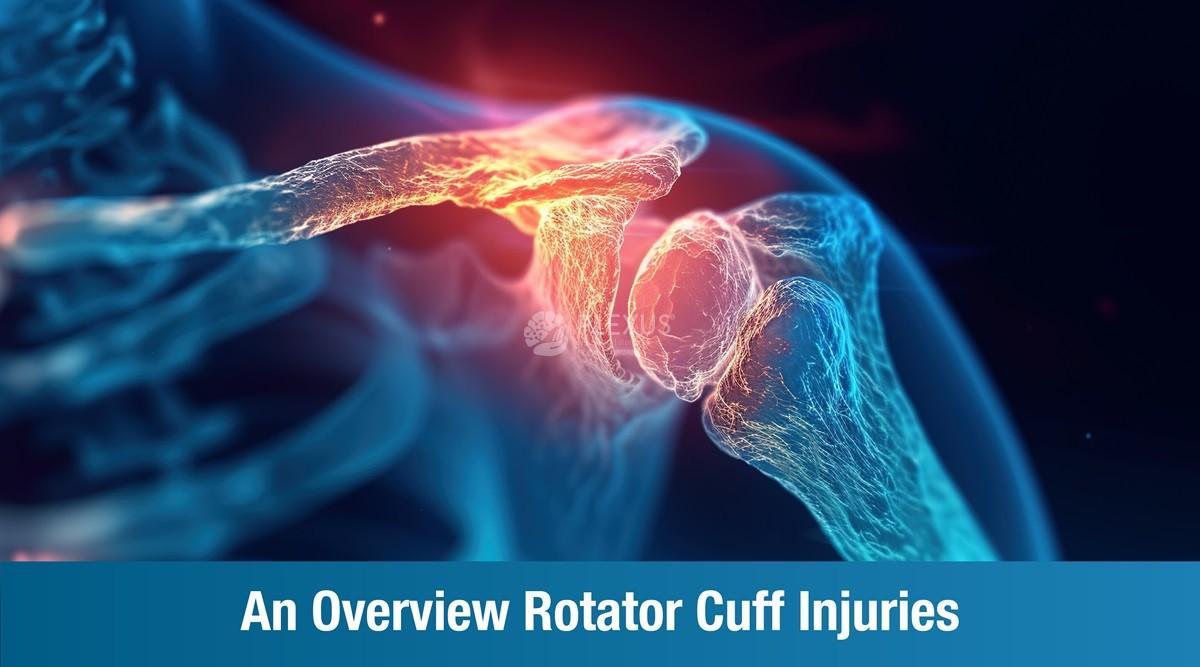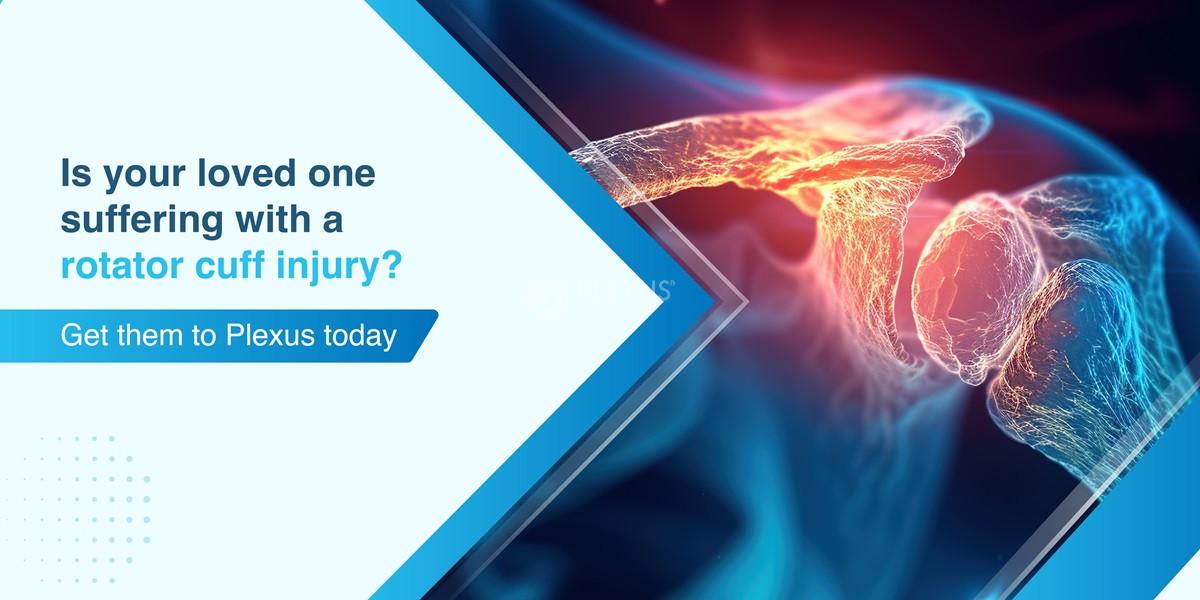
Symptoms, Causes, and Effective Treatments
Rotator cuff injuries are a prevalent and usually debilitating type of sports injury that affects millions of individuals worldwide. Whether you’re an athlete, a weekend warrior, or someone simply going about daily activities, you are at risk of experiencing a rotator cuff injury. Understanding the symptoms, causes, and treatment for rotator cuff injuries is essential for effective management and recovery. This blog is a comprehensive guide that explores the intricacies of rotator cuff injuries, including their symptoms, causes, and the most effective treatment strategies available.
Understanding Rotator Cuff Injury
The rotator cuff is a group of muscles and tendons surrounding the shoulder joint, providing stability and facilitating various shoulder movements. These muscles and tendons play a crucial role in allowing the shoulder to move and function properly. However, this intricate structure is susceptible to injury, leading to pain, weakness, and limited mobility in the shoulder.
Rotator cuff injuries can range from mild inflammation and irritation to partial or complete tears of the muscles or tendons, resulting in pain, weakness, and limited mobility in the shoulder. These injuries can occur suddenly due to trauma or overuse, or develop gradually over time due to repetitive stress or age-related degeneration.
Rotator cuff injuries are common among athletes, particularly those involved in sports that require repetitive overhead motions, as well as individuals with occupations or activities that involve frequent use of the shoulder joint.
Symptoms and Signs of Rotator Cuff Injury
Recognising the symptoms of a rotator cuff injury is critical for an accurate diagnosis and timely treatment.
The most common symptoms of a rotator cuff injury are:
- Shoulder pain, especially with overhead movements or reaching behind the back
- Clicking or popping sensations during shoulder movements
- Pain or discomfort when sleeping on the affected side
- Weakness or loss of strength in the affected shoulder
- Limited range of motion in the shoulder joint
- Swelling or tenderness in the shoulder area
- Difficulty lifting or carrying objects
Rotator Cuff Injury Causes
The most common causes of rotator cuff injuries are:
- Overuse or repetitive motions – typically performed in sports like baseball, tennis, or swimming
- Age-related changes – degeneration of the rotator cuff tendons and muscles
- Traumatic injuries – falls, direct blows to the shoulder, or sudden impacts
- Underlying structural abnormalities in the shoulder anatomy
- Poor posture or improper lifting techniques
- Family history of sports injuries
Conventional Treatment for Rotator Cuff Injury
Conventional treatments for rotator cuff injury are aimed at reducing pain and inflammation, promoting healing, and restoring shoulder function. These may include:
- Physiotherapy exercises to strengthen the rotator cuff muscles as well as improve shoulder mobility
- Extracorporeal shock wave therapy (ESWT) to stimulate tissue repair and promote regeneration
- Nonsteroidal anti-inflammatory drugs (NSAIDs) to reduce inflammation and alleviate pain
- Platelet-rich plasma (PRP) injections to help in healing and accelerate recovery
- Corticosteroid injections for temporary relief from pain and inflammation
- Rest and activity modification to avoid injury aggravation
Surgical options for rotator cuff injuries may include arthroscopic repair, open surgery, or shoulder replacement, depending on the nature and extent of the injury.
Sports Injury Rehabilitation at Plexus
Physiotherapy
At Plexus, physical therapy and exercise play a crucial role in the rehabilitation of rotator cuff injuries. Our highly-skilled physiotherapists design customized exercise programs to strengthen the rotator cuff muscles, improve shoulder stability and flexibility, and promote proper biomechanics. These exercises may include:
- Rotator cuff strengthening exercises, such as external and internal rotation exercises, shoulder abduction, and scapular stabilization exercises
- Range of motion exercises to improve shoulder mobility and flexibility
- Stretching exercises to alleviate muscle tightness and improve joint flexibility
- Functional exercises to simulate activities of daily living and sports-specific movements
Consistent participation in a structured rehabilitation program is vital for achieving optimal outcomes and preventing recurrent injuries.
Cell Therapy
Mesenchymal Cell therapy is an innovative approach to treating rotator cuff injuries, offering the potential for tissue repair and regeneration in the damaged shoulder tissues.
Mesenchymal Cells (MSCs) are multipotent cells found in various tissues throughout the body, including bone marrow, adipose tissue, and umbilical cord blood. Injected MSCs migrate to the damaged tissues within the rotator cuff, where they promote tissue repair and regeneration through various mechanisms. These mechanisms include:
- Differentiation: MSCs can differentiate into specific cell types found within the rotator cuff, such as tenocytes (tendon cells), myocytes (muscle cells), and chondrocytes (cartilage cells). In this way they help to replenish and repair the damaged tissue.
- Paracrine Effects: MSCs can secrete a variety of bioactive molecules, growth factors, and cytokines that have anti-inflammatory, immunomodulatory, and tissue-repairing properties. This promotes tissue healing and regeneration within the rotator cuff.
- Angiogenesis: MSCs stimulate the formation of new blood vessels (angiogenesis) in the injured area. This helps improve blood flow and nutrient delivery to the damaged tissues, essential for tissue repair and regeneration.
The best treatment for a rotator cuff injury depends on the severity of the injury, the individual’s age, activity level, overall health, and other factors. A multifaceted approach that combines conservative treatments such as rest, physical therapy, and medication with newest therapeutic interventions such as Cell surgery, and surgery (in advanced cases) is an effective management of rotator cuff injuries.
If you wish to know more about our treatment plans for rotator cuff injuries, reach out to Team Plexus today.
WhatsApp +91 89048 42087
Call +91 78159 64668 (Hyderabad) | +91 82299 99888 (Bangalore)
Read about common sports injuries here.
Read about Cell therapy for sports injuries here.
FAQs
How do I know if I have damaged my rotator cuff?
If you experience persistent shoulder pain, weakness, difficulty lifting or reaching overhead, limited range of motion, clicking or popping sensations during shoulder movements, it is best to seek medical evaluation and diagnosis immediately.
How long does it take for a rotator cuff to heal?
The healing time for a rotator cuff injury is typically determined by the severity of the injury, individual factors such as age and overall health, and the chosen treatment strategy. Mild to moderate rotator cuff injuries generally take several weeks to months to heal with conventional treatments such as rest, physical therapy, and anti-inflammatory medications. Severe injuries, especially those requiring surgical intervention, may take longer to heal, with recovery times ranging from several months to a year or more.
Will Cells heal a torn rotator cuff?
By harnessing the regenerative properties of Cells, Cell therapy helps promote tissue repair and regeneration in a torn rotator cuff. It aims to stimulate healing and improve shoulder function.











